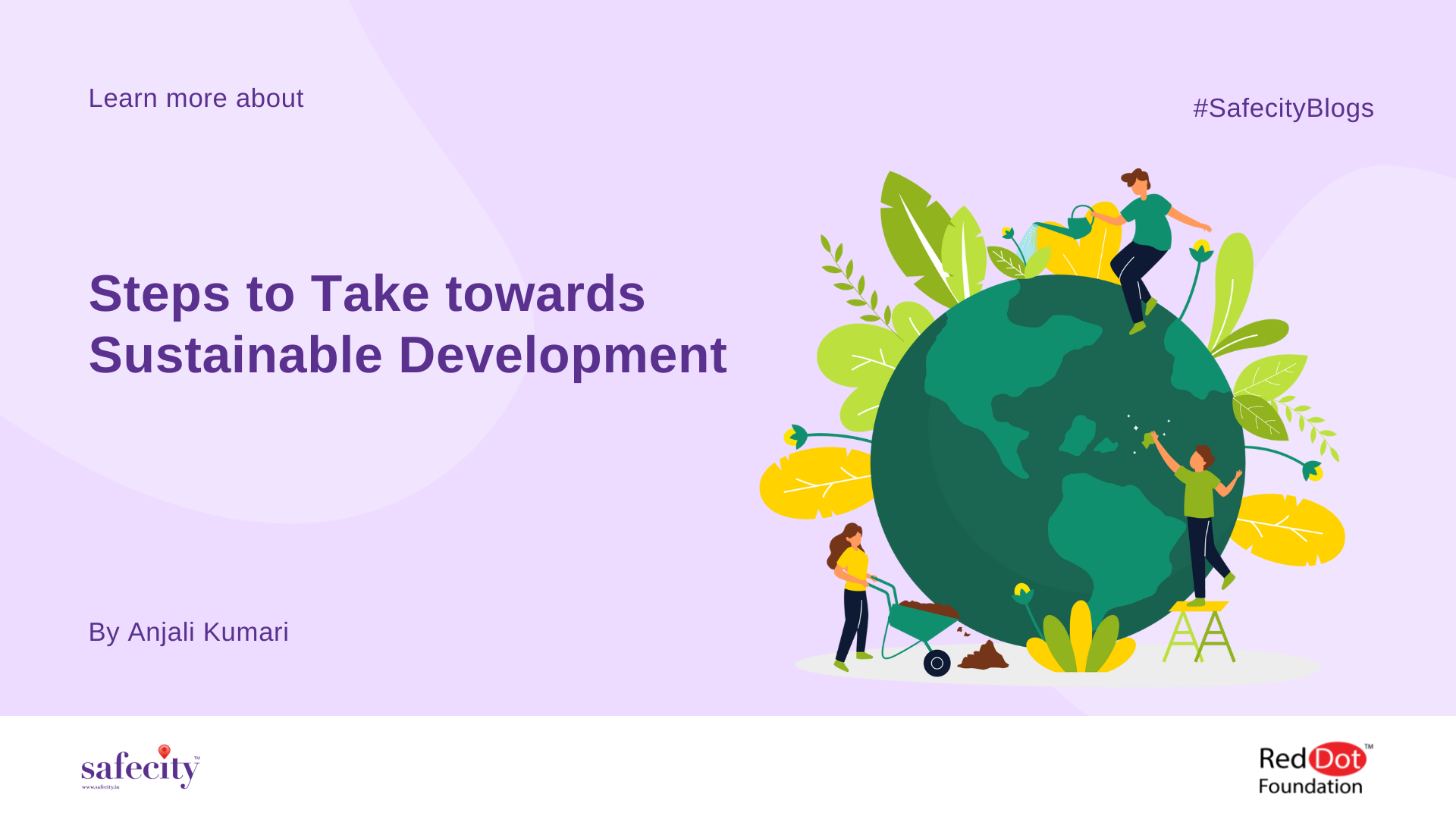Steps to Take towards Sustainable Development

By Anjali Kumari
The term ‘Sustainable Development’ first came to light in 1987 when the Brundtland Report explored the consequences of environmental deterioration. A meeting was organized by the United Nations and chaired by the then Norwegian Prime Minister Gro Harlem Brundtland to understand the correlations between economic progress and globalization. The WCED (World Commission on Environment and Development) was also in charge of proposing long-term solutions and implementing them in the 21st century.
Presently, with the upcoming G20 meeting, many organizations and leaders have raised concerns about the lack of discussions among ministers of respective countries about the need to abandon fossil fuels and invest in renewable energy. Fossil fuels are one of the main causes of the climate crisis, and they cause climate disruption, whilst renewable energy technology is the first step we must take towards sustainable development. However, financial constraints are a major challenge when it comes to renewable energy technology, so it is important to remove the intellectual property barriers to technology transfer.
Apart from that, a “Food for All” motto was set to reach the target of removing hunger, where more than 800 million people are suffering in countries like Africa, Asia, Latin America, etc. The rapid increase in industrialization has had a negative impact on agro-business, and there is an urgency to improve and modify agricultural production. Hence, political contributions to economic, social and cultural issues could improve the situation, and investment in research or introduction of policies related to development in agriculture can help sustain the environment. Even the accumulation of household and industrial wastes is haphazard, and recycling these waste products will help as they can be used as manure for farming.
Another suggestion proposed by some intellectuals was the utilization of modernized electricity grids as they help to deliver electricity more efficiently. This can greatly reduce the frequency and duration of a power blackout and restore electricity faster whenever the power blackout occurs. The common man will thus be able to manage power consumption and prices better. This proves that the world must transition into a sustainable future as it can save many vulnerable people.
A very recent step has been taken by the Ministry of Environment, Forest and Climate Change in India – the ban of single-use plastic from 1st July 2022. Disposable or single-use recycled plastic items such as earbuds, cigarette packs, sweet boxes, candy wrappers etc., have been banned according to the Plastic Waste Management Rules. We have seen how plastics have become a significant part of our lives. Studies have found that around 8 million metric tons of plastic end up in the ocean. It is also predicted that by the year 2050, there will be more plastics than fish. The Seabin Project developed the Seabin V5, which has a design of a vacuum and is made from recyclable materials that pumps water into a filter bag. This water is pumped back out, leaving the trash inside the bag.
On the other hand, due to the increase in wars and armed conflicts in the Middle Eastern and North African countries, the goals to achieve sustainable development look worrisome. It has caused a massive distinction in the education quality, especially for the marginalised population. And diminishing this gap is one of the most powerful vehicles for sustainable development. But the children are out of school, and their parents struggle to find employment. People are forced to either join the war or die in the chaos. Moreover, women are affected heavily by wars and natural disasters.
Peace among the countries plays a crucial role in sustaining the environment. In that case, citizens need to educate themselves, or people from developed countries can help them by setting up non-profit organizations there. It is now proven that empowering women and girls can help sustain the country’s economic growth and development. The unpaid care and domestic work do not help them cover the personal expenses they have to bear because of those armed disasters. Many studies have found that when women engage in the field of research, their high participation tends to challenge the existing gender stereotypes, and there is an improvement in terms of wages as well as access to resources. Hence, encouraging them to participate in the workforce can easily increase the country’s economic stability.
Addressing the common man about sustainability-related fields can help transform the world. For instance, Delhi and Haryana governments have always urged people for regular vehicle checkups and implemented pollution taxes on industries emitting smoke. If they try to break the law, it could lead to paying a hefty fine and imprisonment for several years.
Rapid renewable solutions or directly participating in sustainable development is vital to save our planet. While adopting these strategies can benefit the environment, they may not work efficiently on a larger scale. But we can spread awareness about these among the people to bring about change.
References:
- Brundtland Report | publication by World Commission on Environment and Development | Britannica
- Antonio Guterres writes | The need of the hour: A Renewables revolution (indianexpress.com)
- Single-use plastic ban in India kicks in: Here are some alternatives you can use
- Offer useful land for green cover, states told in push for sustainable development
- Innovative Ways We’re Cleaning Up the Ocean and How You Can Help | Technology Networks
- Sustainable development in agriculture – Sentinelassam
